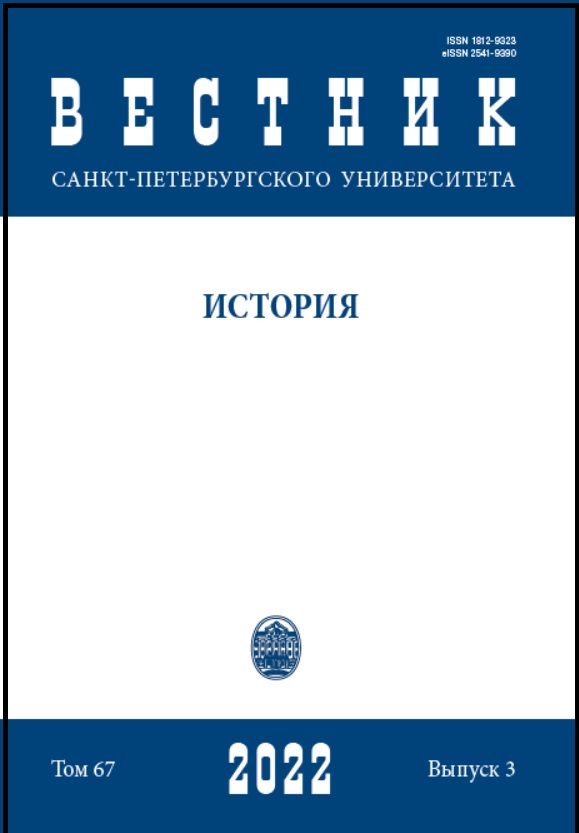Discourse of Loyalty, Subjecthood and Citizenship: from Medieval to Modern Practices
DOI:
https://doi.org/10.21638/spbu02.2022.315Abstract
The article discusses historical, linguistic, and discursive aspects of the nouns loyalty, subjecthood, and citizenship. Тhe focus is on the historical lexico-semantic changes of the three nouns, which demonstrate that denotations are modified in different historical contexts. The analysis starts with D. Sperber and D. Wilson’s assumption that the correspondence between concepts and words may be one-to-one, one-to-many, many-to-one, or a combination of these since it is quite implausible that there is an exhaustive one-to-one mapping between mental concepts and public words. Words can be used in different contexts and discourses, and the synchronic semasiological approach may not always provide the full specification of word meaning, especially when the meaning of abstract nouns is analyzed. As argued by H.-J. Schmid, the formation of concrete concepts is different from the formation of abstract concepts, the latter being more complex as it can depend on many different experiences, which can make it difficult to form a single stable abstract concept. In the report on their experiments, S. J. Crutch and E. K. Warrington’s assertion would be that abstract concepts are represented in an associative neural network while concrete concepts have a categorical organization. This suggests that concrete words are more likely to be understood adequately, and, vice versa, abstract words —
inadequately. Moreover, our understanding of words and the world can change over time because our experiences and historical circumstances can and do change. This article considers the issue of abstract concept-formation with regard to both synchronic and diachronic lexico-semantic aspects of the nouns loyalty, subjecthood, and citizenship. These aspects are analyzed in accordance with the lexico-semantic frameworks provided by the second editionof the University of Glasgow’s Historical Thesaurus of English. The aim is to demonstrate that the meanings of the three nouns can be understood more adequately if their lexico-semantic features are compared and contrasted not only synchronically but also diachronically. Another aim is to show that a better understanding of the nouns relies on both synchronically and diachronically contextualized knowledge.
Keywords:
loyalty, subjecthood, citizenship, concept, lexico-semantic features, synchronic, diachronic
Downloads
References
References
Downloads
Published
How to Cite
Issue
Section
License
Articles of "Vestnik of Saint Petersburg University. History" are open access distributed under the terms of the License Agreement with Saint Petersburg State University, which permits to the authors unrestricted distribution and self-archiving free of charge.





